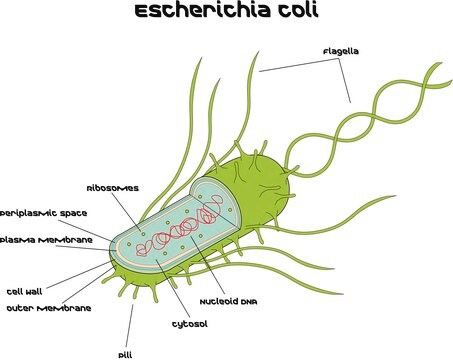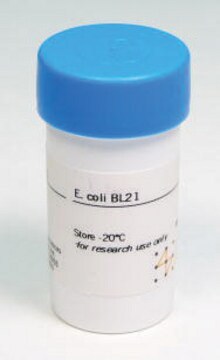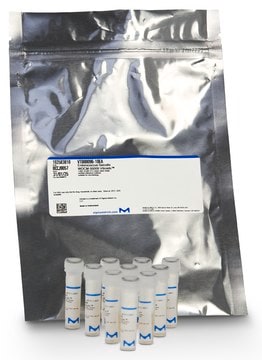EC1
Escherichia coli
Strain K12, lyophilized cells
Synonym(s):
E. coli K-12
Sign Into View Organizational & Contract Pricing
All Photos(1)
About This Item
Recommended Products
Quality Level
sterility
non-sterile (not processed or packaged aseptically)
form
lyophilized cells
suitability
not intended for starter culture
storage temp.
−20°C
Looking for similar products? Visit Product Comparison Guide
General description
Escherichia coli (E.coli) is a non-spore forming, Gram-negative, rod-shaped facultative anerobe, which is found in the human gastrointestinal tract. It belongs to the family of Enterobacteriaceae. E.coli is chemoorganotrophic and grows at 37°C. Pathogenic E.coli strains is associated with diarrhea, septicemia, meningitis and urinary tract infections. It inhibits the colonization of the gut by harmful bacteria. E.coli acts as an indicator of fecal contamination.
Other Notes
A mutant which is rich in alkaline phosphatase.
Storage Class Code
11 - Combustible Solids
WGK
WGK 3
Flash Point(F)
Not applicable
Flash Point(C)
Not applicable
Personal Protective Equipment
dust mask type N95 (US), Eyeshields, Gloves
Choose from one of the most recent versions:
Certificates of Analysis (COA)
Lot/Batch Number
Don't see the Right Version?
If you require a particular version, you can look up a specific certificate by the Lot or Batch number.
Already Own This Product?
Find documentation for the products that you have recently purchased in the Document Library.
Tássia Silva Tavares et al.
Molecules (Basel, Switzerland), 25(2) (2020-01-16)
Owing to their high surface area, stability, and functional groups on the surface, iron oxide hydroxide nanoparticles have attracted attention as enzymatic support. In this work, a chemometric approach was performed, aiming at the optimization of the horseradish peroxidase (HRP)
Pei-Gee Yap et al.
Foods (Basel, Switzerland), 9(9) (2020-09-24)
Active fragments (bioactive peptides) from the chicken egg white proteins were expected to exert tyrosinase inhibitory activities in which skin hyperpigmentation could be prevented. Egg white was hydrolyzed by trypsin, chymotrypsin and the combination of both enzymes. The enzyme treatments
Detection and Typing Strategies for Pathogenic Escherichia coli (2015)
Antonio Guerrieri et al.
Biosensors, 10(10) (2020-10-22)
The present study describes the kinetics of L-lysine-α-oxidase (LO) from Trichoderma viride immobilised by co-crosslinking onto the surface of a Pt electrode. The resulting amperometric biosensor was able to analyse L-lysine, thus permitting a simple but thorough study of the
Jianmin Chen et al.
Frontiers in pharmacology, 11, 81-81 (2020-03-27)
Inorganic mercury compounds have been used in skin-lightening products since ancient times. Although a previous study demonstrated that mercury impeded the transfer of Cu2+ to the apotyrosinase, the effect of mercury on tyrosinase is still unclear. In the present study
Our team of scientists has experience in all areas of research including Life Science, Material Science, Chemical Synthesis, Chromatography, Analytical and many others.
Contact Technical Service







